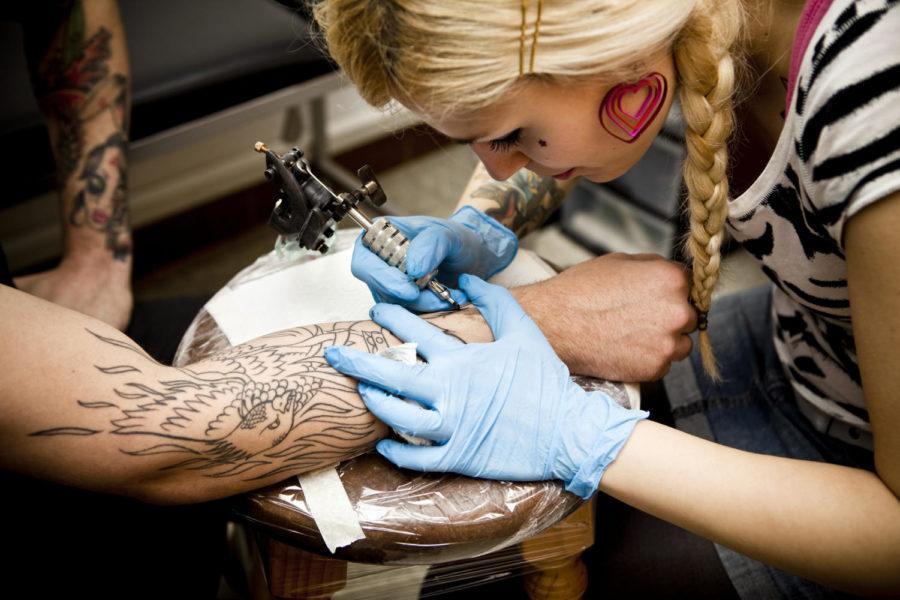Moran: States should stand together on the legal age for ink
Columnist Moran believes that states should all enforce the same age restrictions on tattoos.
September 13, 2015
One of the fastest growing trends in our culture today is the acquisition of a tattoo. Whether it be as a form of expression or an act of rebellion, tattoos have become far more socially acceptable than in years past. Nearly 4 out of 10 adults have at least one tattoo, according to Pew Research Center.
Along with any growing trend, questions of its longevity and legitimacy will always arise. One of the biggest questions involving tattoos is “When should young adults be legally allowed to get a tattoo?” Looking further into this question, you have to break it up into two sub categories: can teens get inked with or without parental consent?
Getting a tattoo can mean a lot of things, especially in today’s society. It can also have different effects on different people by making them feel rebellious, sexy, strong, attractive or even intelligent. Getting a tattoo in today’s society is encouraged, but only predominantly among our own generation. Millennials have the highest percentage of body art, 38 percent, while our parent’s generation was only 15 percent.
Many actors, athletes and celebrities who have tattoos have no problem showing them. Rihanna, Johnny Depp and Colin Kaepernick, the quarterback for the San Francisco 49ers, are just a few who proudly display their ink. Songs such as “Ink My Whole Body” by Wiz Khalifa and “Tattoo” by Jordin Sparks have made tattoos more desirable to younger generations and emphasize how much meaning tattoos can present.
The more popular tattoos become, the more teens tend to want them. The problem is 17 of the 50 states outright ban minors from getting a tattoo, some require parental presence and some states allow it with written parental consent.
The problem is the country is all over the place when it comes to tattooing minors.
When I turned 16 I had no want or desire for a tattoo, but after talking to a few friends and doing some research I was hooked on the idea. I got tattoo of a cross with a music staff on my right shoulder because it expressed two of the most important parts of my life.
One major problem I ran into when I was planning for my tattoo was the fact that Iowa does not allow minors to get tattoos. So I did what any sensible, young adult would do after being told no. I found a loophole. Iowa does not allow tattoos to minors, but Nebraska does at age 16 with written parental consent.
So is it right to leave it up to the states? In my case, I didn’t agree with my home state’s law, so I went to a neighboring state. Some argue that unifying the legal age for tattoos across all 50 states would be beneficial. I personally feel this would be the best course of action.
The right to ink laws are left up to the state legislature, which is protected under the 10th Amendment.
That being said, if a minor wants a tattoo, I feel it is perfectly acceptable with parental consent. If you’re old enough to drive a car, make decisions about sex and have the option to drop out of high school at age 16, why can’t you get a tattoo? It’s part of growing up, but parental consent is a good safeguard.
A tattoo is a permanent fixture on your body and will stay with you for life unless you decide to have it removed. That’s why parental consent is important because as teenagers we can, on occasion, be a little impulsive and decide to take a road trip to get a tattoo.
I believe it should be acceptable for a minor to get a tattoo in his or her own state with parental consent. It would make much more sense for all 50 states to figure out a consistent law rather than having everyone running in different directions.







